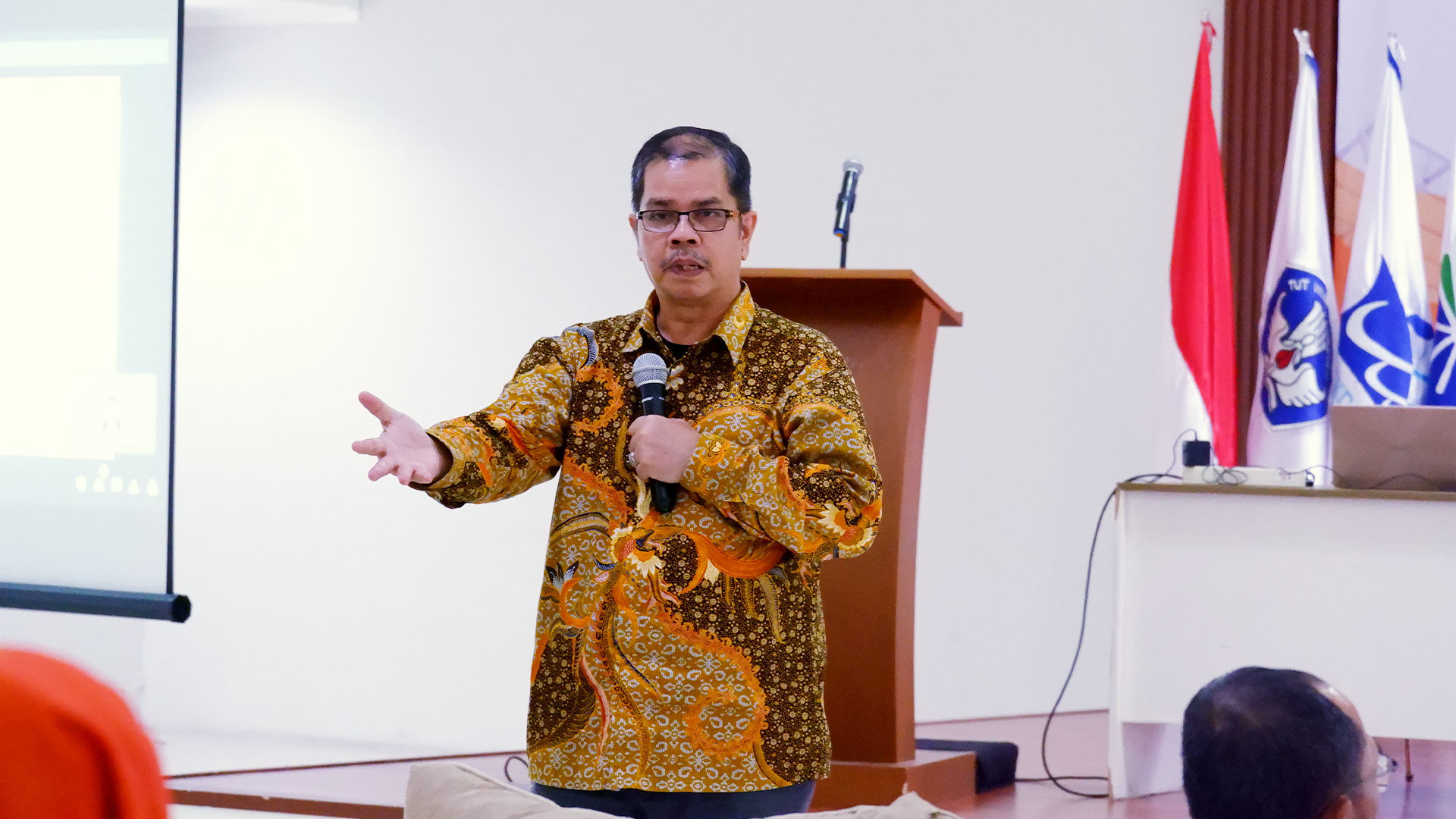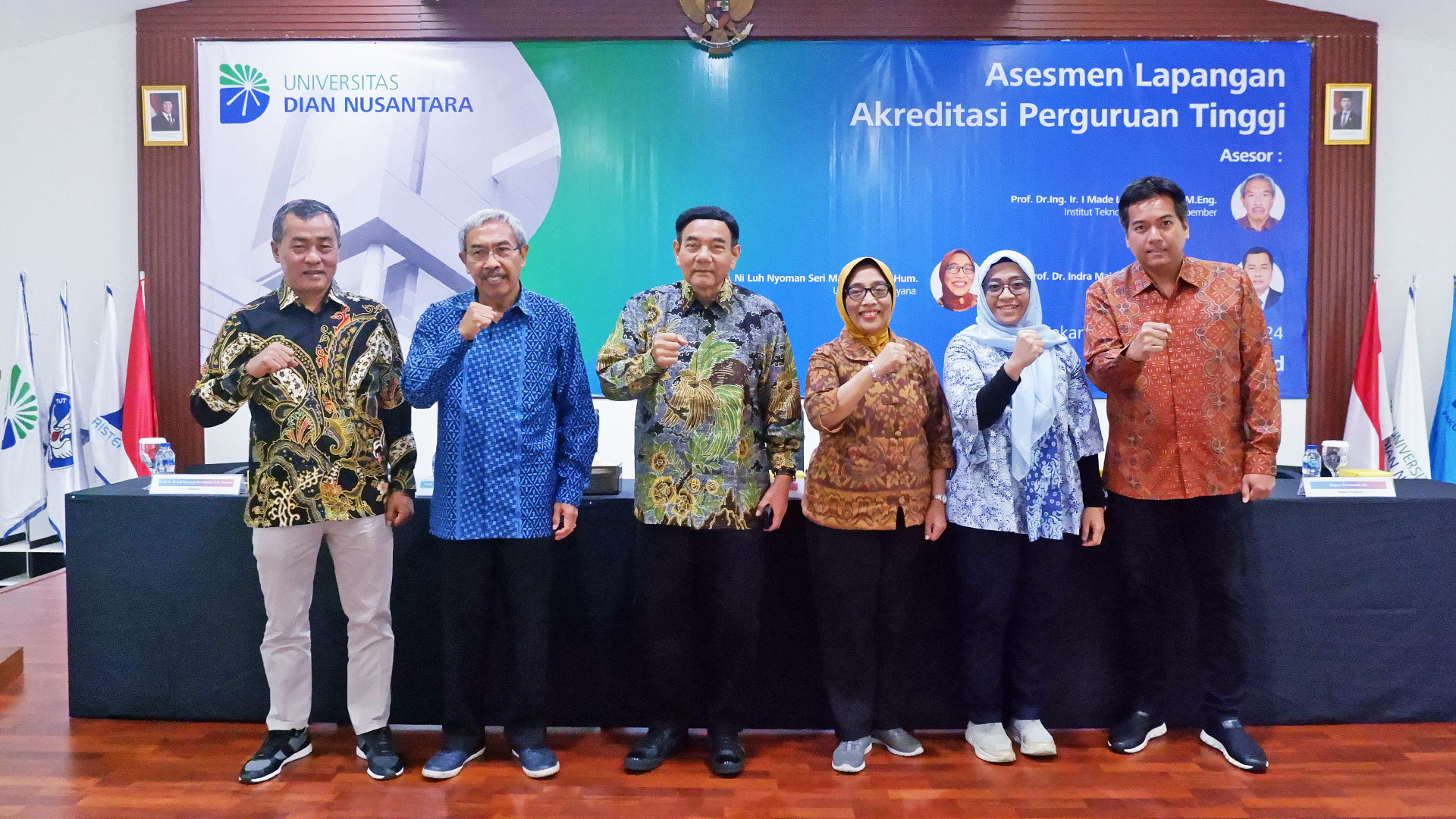Enhancing Management Effectiveness and Efficiency: UNDIRA's Efforts to Maximize Academic Activities

Organizational Governance is the framework that ensures every operational aspect at a university runs effectively, efficiently, and transparently. In the context of academic programs, organizational governance plays a crucial role as the foundation for forming and achieving academic and operational goals. To improve the quality of education and the advancement of each program in producing competent graduates, the Faculty of Business and Social Sciences at Universitas Dian Nusantara (UNDIRA) held a Workshop on Organizational Governance at the University on August 9, 2024, at UNDIRA's Tanjung Duren Campus. The event was attended by several faculty members from the Faculty of Business and Social Sciences, including the Management, Accounting, Communication Studies, and English Literature programs. The speaker for this workshop was Dr. Harnovinsah, S.E., Ak., M.Si., Dean of the Faculty of Economics and Business at Universitas Pancasila.
The management of organizational governance within each academic program is an aspect that cannot be overlooked. The process of supervision and evaluation in governance provides opportunities for academic programs to monitor academic performance, student satisfaction levels, and graduate success. Moreover, governance plays a crucial role in ensuring that the curriculum remains relevant to the developments in knowledge and current labor market needs. This includes the development of new programs, innovation in teaching methods, and updates to academic materials.
This program also aims to support the integration of learning with technology through the concept of the Internet of Things (IoT). The Internet of Things (IoT) is a concept where various physical devices equipped with sensors, software, and other technologies are connected to the internet to communicate, collect, and exchange data.
In Dr. Harnovinsah’s presentation, it was revealed that the development of the Internet of Things (IoT) has significant potential to influence students' academic performance and university activities, especially among Generation Z, who are known as digital natives and are highly familiar with technology. From a learning perspective, as the need to master various disciplines increases due to technological advances, the curriculum of each program can be easily adjusted based on data obtained through IoT devices. This enables educational institutions to tailor teaching materials to be more relevant to students' needs and preferences.
The implementation of IoT provides opportunities for Generation Z to collaborate on projects or group assignments more efficiently, even when in different locations. IoT-based collaboration platforms support effective communication and coordination. Dr. Harnovinsah also emphasized that this will open up opportunities for flexibility regarding the types of jobs that students can access. He explained the concept of Sunrise Industry and Sundown Industry, referring to the direction of job fields experiencing fluctuations, whether inflation or deflation, in demand across disciplines through the integration of learning using technologies like artificial intelligence (AI).
Regarding curriculum development, it is necessary to add sub-courses relevant to the main courses within a study program. This aims to broaden students' horizons and provide additional knowledge, particularly in rapidly growing fields with potential as current job markets. For example, based on the presentation, one field that can be added is Finance and Financial Management. In addition to Financial Management and Capital Markets, related sub-courses like Financial Mathematics and Business Feasibility Studies are also important to introduce.
Moreover, the application of governance principles in enhancing educational interactivity was a significant topic discussed in the meeting. Evaluations related to governance have a significant impact on student internship activities. This is because there is a close relationship between academic guidance from faculty on campus and the criteria for internship reports that students must prepare.
Effective management can increase students' chances of securing employment after graduation. Well-organized and supervised internship experiences are often a key consideration for companies when recruiting new graduates. When organizational management provides optimal support for internship activities, students tend to be more active and engaged in the experience. This interaction is crucial as it helps students develop professional networks and soft skills that are not always acquired in academic settings.
In the final section, the potential development of Chat GPT as a tool to reinforce students' seriousness in conducting research was also discussed. The implementation of the concept of final project development as an alternative for students is expected to minimize the potential incompetence that may arise from the culture of copy-pasting that could result from using Chat GPT. Thus, this step is expected to improve the quality of graduates, making them more creative and innovative.

(Danang Respati Wicaksono / HUMAS UNDIRA)
Press Contact :
Biro Humas & Sekretariat Universitas Dian Nusantara
Facebook : www.facebook.com/undiraofficial
Instagram : www.instagram.com/undiraofficial
Twitter : www.twitter.com/undiraofficial
www.undira.ac.id

Campus Tanjung Duren
Jln. Tanjung Duren Barat II No. 1
Grogol, Jakarta Barat. 11470
Campus Green Ville
JIn. Mangga XIV No. 3
Campus Cibubur
Jln. Rawa Dolar 65
Jatiranggon Kec. Jatisampurna, Bekasi. 17432










